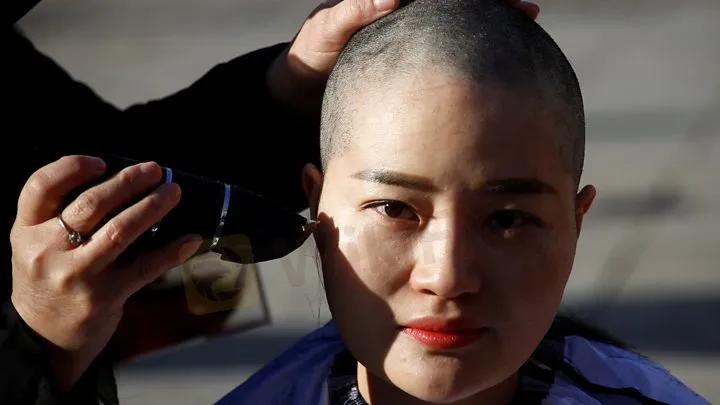简体中文
繁體中文
English
Pусский
日本語
ภาษาไทย
Tiếng Việt
Bahasa Indonesia
Español
हिन्दी
Filippiiniläinen
Français
Deutsch
Português
Türkçe
한국어
العربية
Wang Quanzhang: China jails leading human rights lawyer
Abstract:Image copyrightFamilyImage captionWang Quanzhang went missing in a 2015 crackdownChina has sentenced
Image copyrightFamilyImage caption
Wang Quanzhang went missing in a 2015 crackdown
China has sentenced prominent human rights lawyer Wang Quanzhang to four and a half years in prison for state subversion.
Wang, 42, had defended political campaigners, victims of land seizures, as well as followers of the banned spiritual Falun Gong movement.
He was one of several lawyers and activists arrested in 2015 crackdown, and was the last to go on trial.
China has in recent years intensified its prosecution of rights lawyers.
Mr Wang was "found guilty of subverting state power, sentenced to four years and six months in prison, and deprived of political rights for five years," the court in Tianjin said.
The lawyer who simply disappeared
'My husband just vanished'
The trial had been conducted behind closed doors with journalists and foreign diplomats barred from entering the courthouse.
The BBC's John Sudworth in Beijing says the sentence - which will include time already served - appears designed to send a chilling message to those who dare to challenge the authority of the Communist Party in court.
'Symbolic of abuse under Xi Jinping'
Michael Caster, researcher and author of The People's Republic of the Disappeared, told the BBC after the sentencing that Wang's case was "emblematic of Xi Jinping's assault on the human rights and legal community".
"The rights defence and broader civil society community in China is rightly outraged. For some time now they have rallied around Wang Quanzhang and his wife Li Wenzu as symbolic of both abuse and resistance under Xi Jinping," he said.
Mr Caster said that "the UN Working Group on Arbitrary Detention has found that Wang's detention is arbitrary, which means that under international law he should never have faced a trial in the first place, and so obviously should never have faced any length of sentence".
At the beginning of the trial, rights groups had condemned the court proceedings, with Amnesty International calling them "a cruel charade".

Media playback is unsupported on your device
Media captionWomen shave heads over their husband's detentions in China
China's crackdown on lawyers, known as the "709" crackdown because it began on 9 July, has been seen by activists as a sign of a growing intolerance of dissent under President Xi Jinping.
More than 200 people were detained in that sweep, with many given jail terms, suspended sentences or house arrest.
Disclaimer:
The views in this article only represent the author's personal views, and do not constitute investment advice on this platform. This platform does not guarantee the accuracy, completeness and timeliness of the information in the article, and will not be liable for any loss caused by the use of or reliance on the information in the article.
WikiFX Broker
Latest News
Wolf Capital Exposed: The $9.4M Crypto Ponzi Scheme that Lured Thousands with False Promises
Confirmed! US December non-farm payroll exceeded expectations
Spain plans 100% tax for homes bought by non-EU residents
90 Days, Rs.1800 Cr. Saved! MHA Reveals
The Yuan’s Struggle: How China Plans to Protect Its Economy
LiteForex Celebrates Its 20th Anniversary with a $1,000,000 Challenge
400 Foreign Nationals Arrested in Crypto Scam Raid in Manila
Singapore Blocks Polymarket Access, Following U.S. and France
OneZero Collaborates with Ladies Professional Golf Association (LPGA)
Housewives Scammed of Over RM1 Million in Gold Investment Fraud
Currency Calculator






